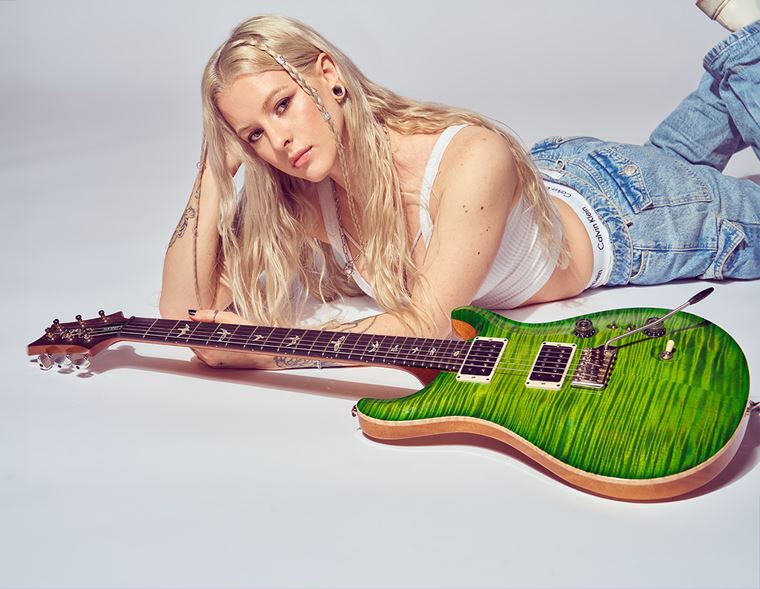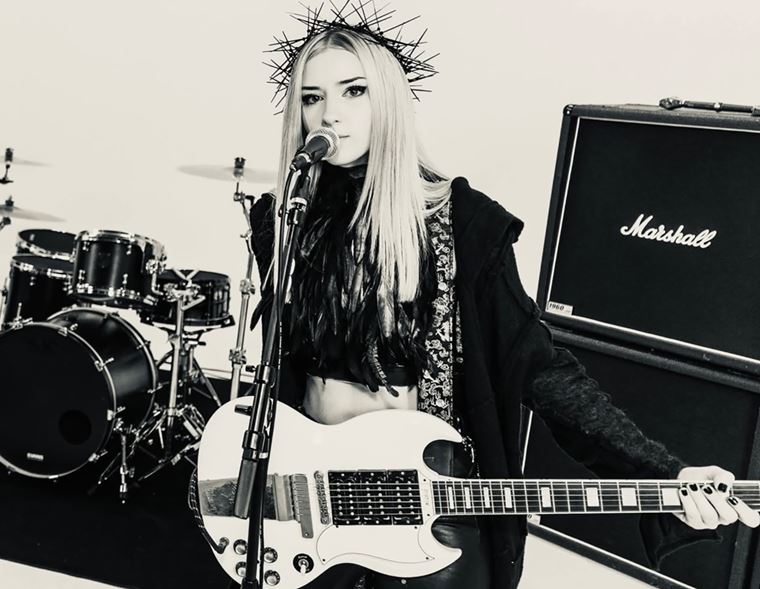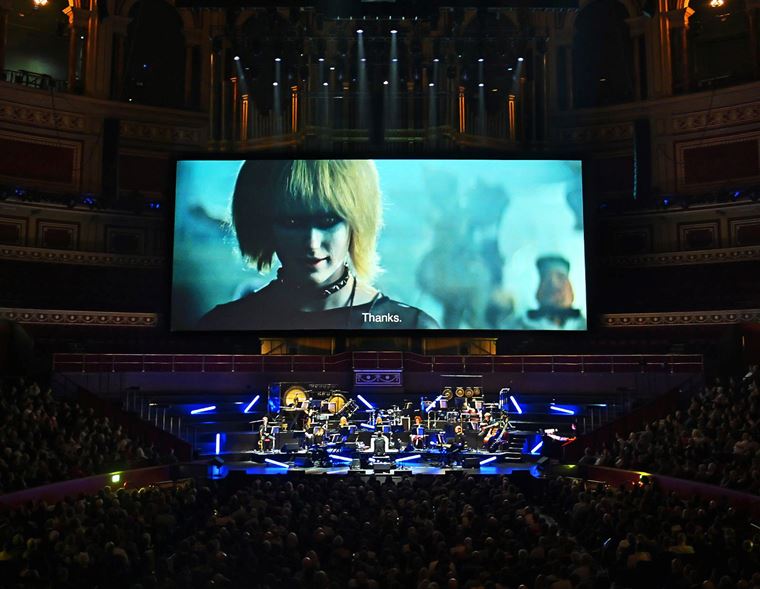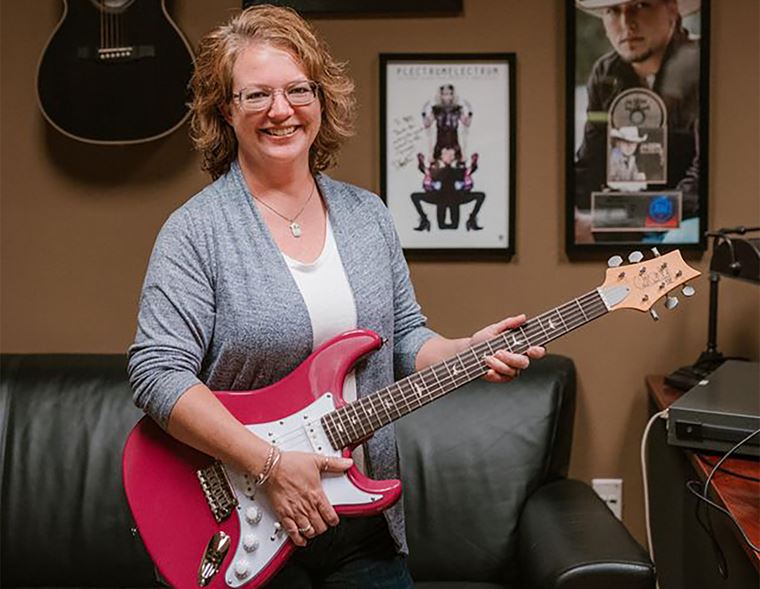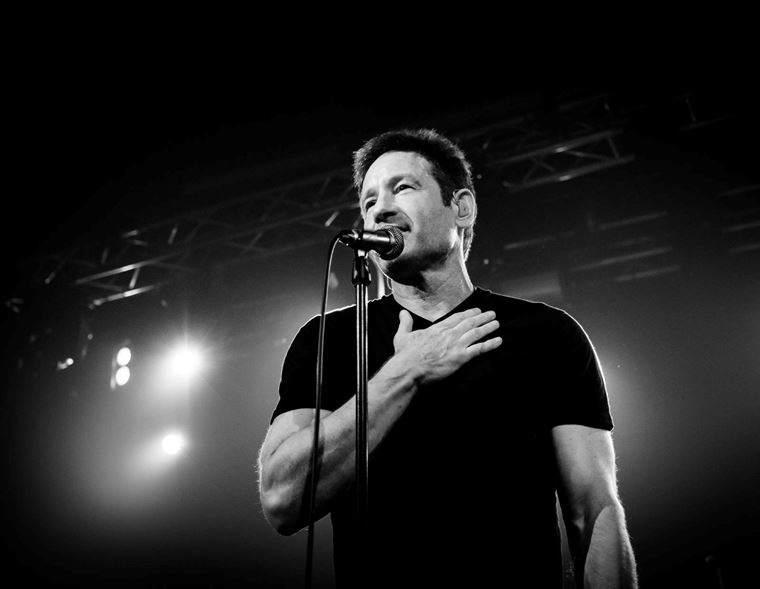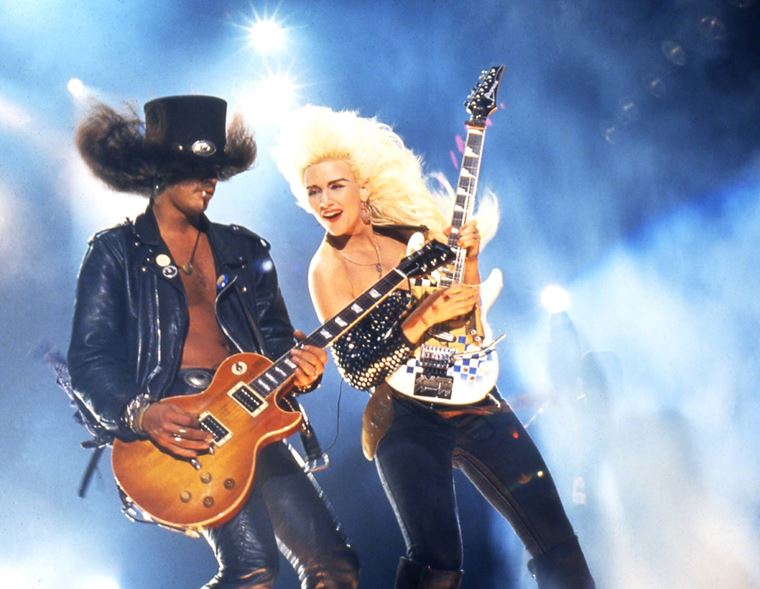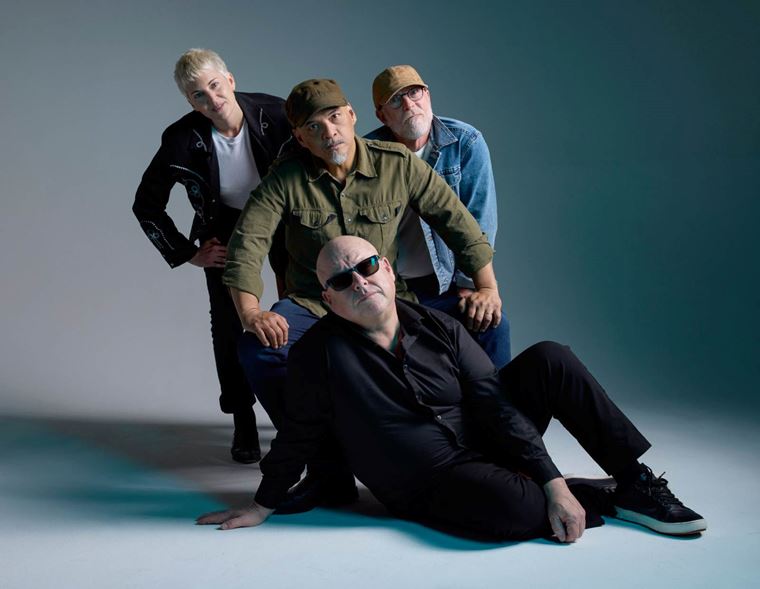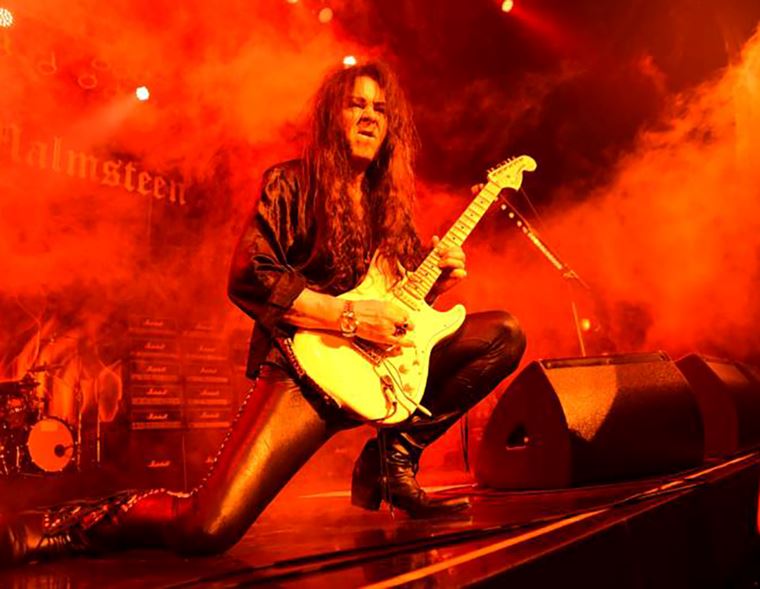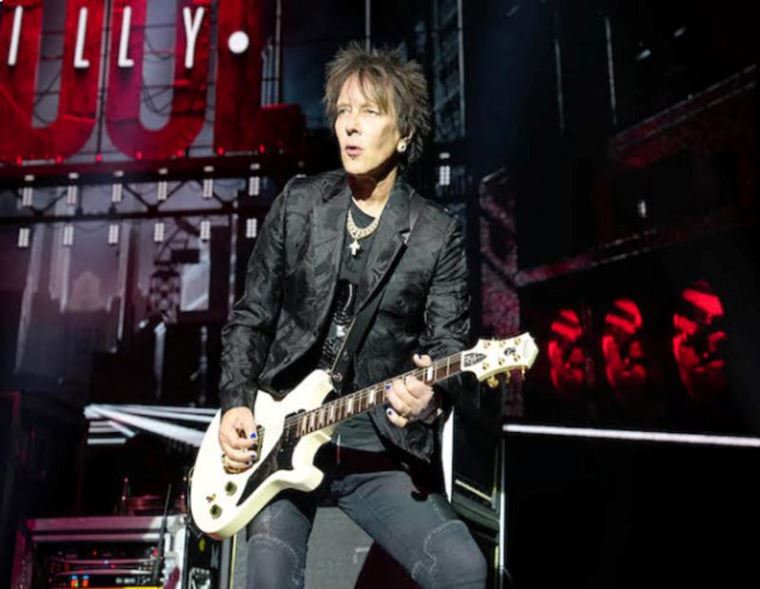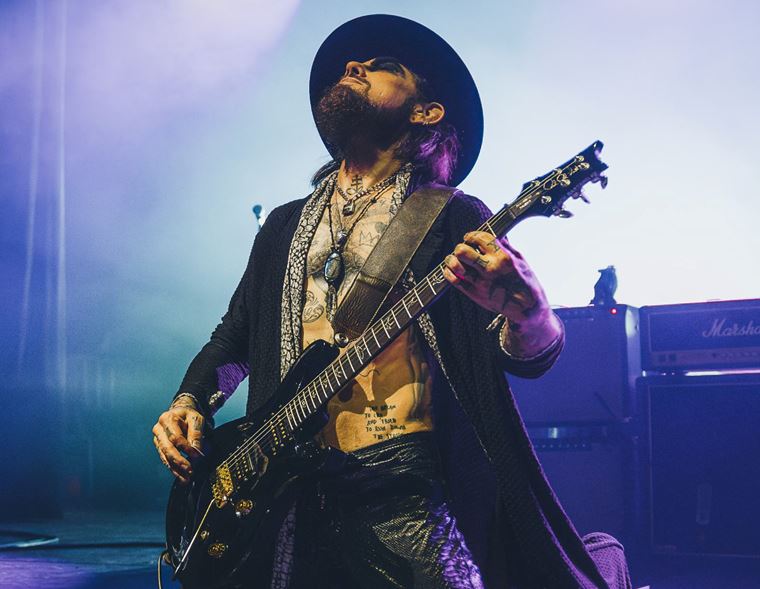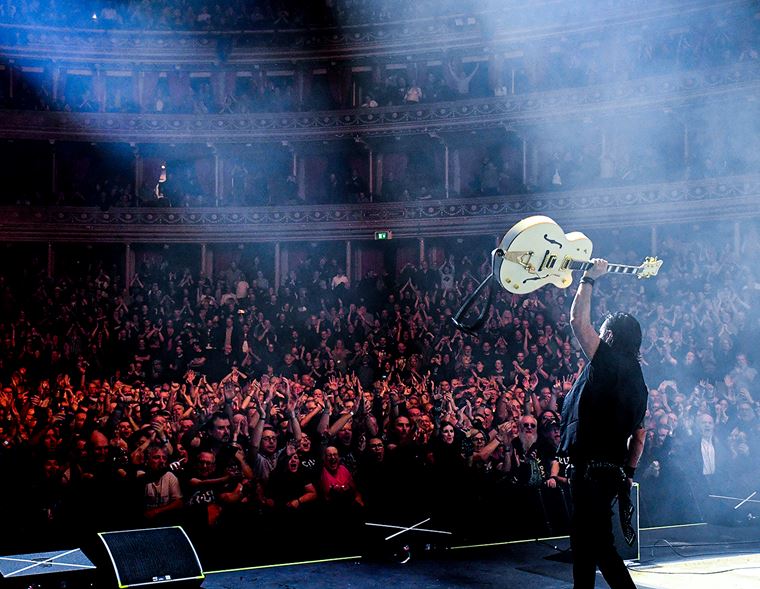Nili Brosh EXCLUSIVE Interview! Danny Elfman and Cirque Du Soleil's Shred Legend!
Published on 17 September 2021
Nili Brosh’s guitar skills are literally on fire.
Her phenomenal playing and musicality have seen the virtuoso share stages with such luminaries as Tony McAlpine, Deathklok, Paul Gilbert and The Aristocrats, but none of those gigs quite equate to the 700-plus shows she performed with the famous Cirque du Soleil for their Michael Jackson One show in Las Vegas. It involves fire, it’s quite a story, and we’ll hear all about it soon in this exclusive interview with Nili.
Our reason to get in touch was initiated by her taking part in the recording of Hollywood composer Danny Elfman’s demented masterpiece Big Mess. Brosh supplied the guitar firepower, alongside Nine Inch Nails guitarist Robin Finck, and we just had to know more.
From her home in Vegas, Brosh chatted to us on Zoom about her days in Berklee, the Cirque, her three tremendous solo albums, and of course her amazing experience with Danny Elfman. We take in Ibanez guitars, the importance of intonation, and the old adage of ‘if it aint broke, don’t fix it’! There’s a lot here in this in-depth interview, and we hope you enjoy it!
Sparks will fly!
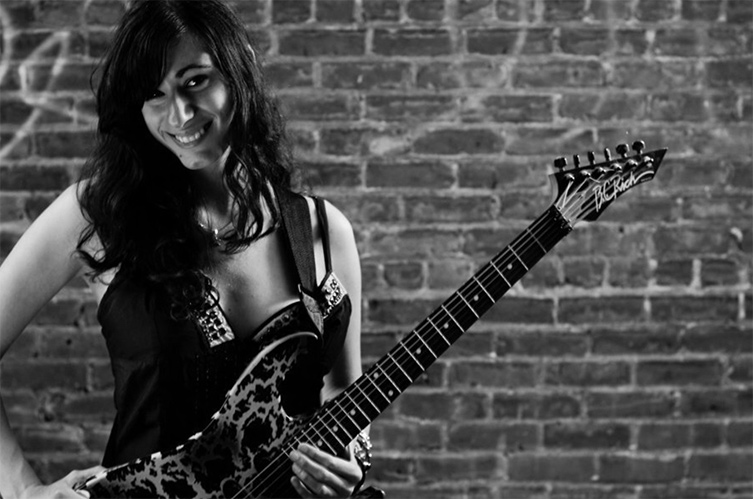
In the Beginning
guitarguitar: So, I guess we should start somewhere near the beginning, without you having to rattle through your timeline, but you were a Berklee alumni. Is that something you always wanted to be from a young age? A world-class shredder who goes to Berklee?
Nili Brosh: Kind of! I mean, I guess it depends on what you define as a ‘young age’ for that. My older brother Ethan, he’s a professional guitarist as well and I grew up kind of watching him do the thing, and get inspired by the kind of music he was into. By the time I was in high school, I definitely knew that I wanted to be a musician, and we lived in Boston, so Berklee was already in our realm. He went to Berklee, so, by the time that I was in high school, I kinda felt like there was a certain trajectory. I kinda knew what that looked like and where I was likely to go if I was to stay serious, you know what I mean?
GG: Mm-hmm! And, how did you find the experience? From the outside, it has that vibe of being a heavily theoretical kind of place. What’s the reality?
NB: It is a lot of what you think it is, especially Berklee versus other contemporary music schools like MI in Hollywood, which I know is known for being more about the playing and performing, not that Berklee doesn’t have that, but there is a lot more of a heavy emphasis on harmony and theory, all that kind of stuff. But I think it also depends on the Major that you choose, cuz that school is very much ‘it is what you make of it’: there’s plenty of, like, bullshit classes to coast on (laughs) if that’s what you really wanted to do! But some people, they just have a different direction, you know? Some people will go there for film scoring: it’s the only school that will give you a Bachelor’s in film scoring, or at least it was when I went there! Or you study Music Therapy, or you study to be an engineer, you know, a lot of peoples’ trajectory was not to become a rock star! (laughs) So it kinda depended on what you were focusing on, but it was a very ‘learned’ kind of situation! Even when it was to do with the playing, I felt that there was a lot of analysis and notes and things.

GG: Sure. That’s something I was interested in asking. There seems to still be this divide amongst guitar players - which goes back to when I was learning as a teenager and well before then - about music theory and how some people think it gets in the way of ‘feeling’. Do you think more guitarists would benefit from learning more theory?
NB: Yeah, I think they totally would, as long as they look at it through the right lens. I think there’s some truth to how it can ruin, like... I wouldn’t say the feeling, but I think if you lean on theory as a way to come up with something rather than going from your ears and then having the theory as a way to just back up your knowledge, then OK, maybe you’re using it the wrong way. But what’s to say what’s the wrong way of something, right?
GG: Sure.
"Genres are not as far from each other as we might think. There's always a running theme of some kind."
NB: So, I dunno, for me it was always the kinda thing where I’ve always relied on my ears, because I felt that it was something I was gravitating towards before I took any lessons. It was just how I heard music, so for me it was really frustrating when I felt like I could figure out any song on the guitar and just have no idea what’s going on! I really felt like I was doing the parakeet thing, it was like, well, I know where the right notes are but that doesn’t mean anything to me! I wanna understand what’s going on. So, for me, it was really just a way to un-mystify what was going on musically, which was important because I always wanted to write and do all the different things, and without these cheat sheets, so to speak, it gets really harder! That’s’ how I felt at the time and I view it as a really positive thing for sure.
GG: Cool! Good, glad to hear that. You mentioned writing there: you’ve got three solo records and there is a lot of spectacular guitar playing there!
NB: Thank you so much!
GG: Not at all! And on top of that, it’s in the context of really good music, there’s more to it than just guitar, and that’s maybe partly what I want to talk to you about. My emphasis is on talking to you about melody and about space in music, but as a total 180 before we do that, there is a bit of gratuitous tapping in one of your songs that knocked me out when I heard it. It’s the song Primal Feels.
NB: Yeah, that’s, I guess my way of like, it’s almost like a joke, you know what I mean? Because the rest of the song is meant to be so hooky that I’m just kinda like: let’s have a section for the people that are just (makes gibbering sound), there’s always something to say, you know? I’m like, Okay, I’m gonna bastardise this just because it can be a section and still live in a tune, you know?
GG: Definitely. It is quite different from the rest of the tune, for sure! What I’m wondering, is: it’s one thing for a person to pick up a TAB book and learn a piece like that, but it’s quite another to write it! How do you even approach such a thing? It’s not like just sauntering through a scale, right?
NB: Right! (laughs) Well, the way that I went about it in that particular situation is that, I never wanted to play tapping ideas just for the sake of tapping. I think that’s maybe where we started when the technique was new, but at this point, I wanted to reflect the idea. So, through the years and through the players that I grew up with, the schooling that I had and everything, I always kind of looked at different ways to lay out arpeggios and ways to tap, or just whatever.
Every shredder, so to speak, has their own way of laying out arpeggios, mostly when they’re tapping them, or even when it’s the sweeping thing. It’s like, there’s different ways of organising that. So, what I would do over the years is I’d take that and spread it over different tonalities, and just take a certain area, whether it’s a Dorian sound or just a certain tonality, and just mess around with that. I’d see what scale tones I’d be getting out of that shape and if I tap it, what extension do I get. You could be thinking of it like a new pentatonic scale, right? Like, I could choose five notes and a certain tonality and I’d figure out how to lay them on two hands. A lot of it started with that. I was thinking a lot about this sus4 kinda sound, so I was messing around with a lot of those kind of... I don’t wanna say ‘scales’, cuz that sounds so exercise-ey, but I just kinda messed around with that tonality and then I spread it out wide over the fretboard. One thing that tapping helps you do well is all that wide intervallic stuff, so I think I just kind of came to that. Then it just became a sequence.
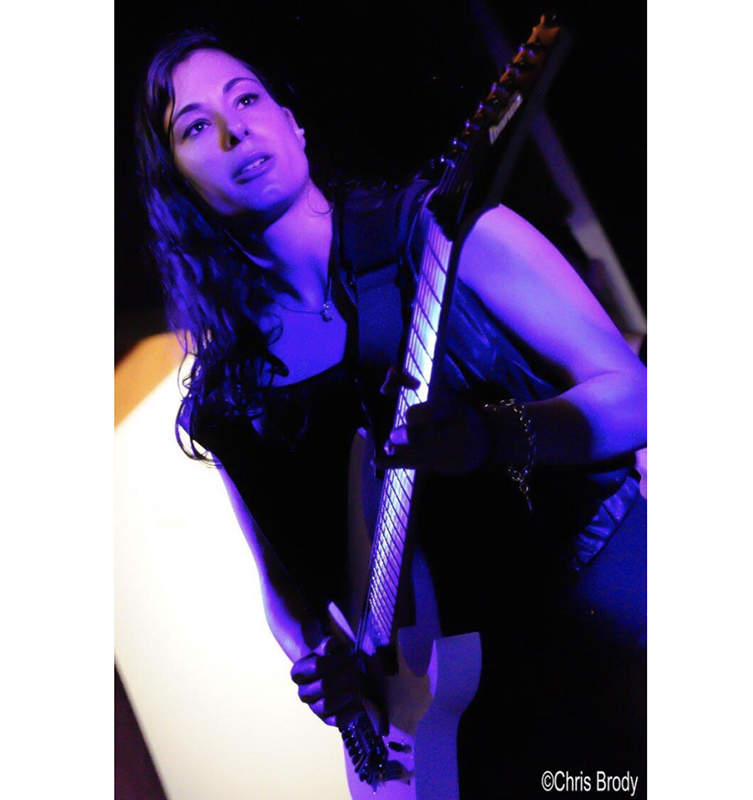
(Pic: Chris Brody)
I just remember being like ‘this is never gonna work!’ because I think I had to like slow the tempo of the song a hair! It’s an interesting thing though, because it’s so note-y but there is a flow to it, it is almost like playing as a keyboard rather than a guitar in a way. But yeah, I’m still like ‘Why? Why?’ (laughs) It’s always gonna give me grief in one way or another! But I like exploring tonalities in that way, and you can come up with different ideas and really see the fretboard in different ways.
GG: Okay, cool! And with that particular part – and please correct me if I’m wrong – but it sounds like, on the recorded version, the guitar solo actually turns into a keyboard solo?
NB: Mm-hmm, that is a keyboard solo. That’s Alex Argento, my mad Italian keyboard player. He actually did all the keys and the arrangement, all that stuff. And the programming.
GG: But then, online, there’s a version of it... I was so surprised, I was thinking, ‘Wouldn’t that be great if Nili played that all on the guitar?’ and then I found a video where you’re doing exactly that!
NB: Yeah, and that’s the hardest thing to play in the entire tune! I never did it live, well I haven’t yet: it’s been a plan, but it’s just like: anything that’s not played by a guitar player, it’s usually twice as hard because it doesn’t sit on the instrument the way that something you came up with does. But that solo is my favourite thing about that tune, that’s why I really wanna play it! It’s so cool.
GG: Yeah, it’s a great piece of music. I know what you mean about the voicings of parts played on other instruments, though it’s fine when you have two hands to play a chord, haha! With players like you who are very technically able, and who have to perform entire sets of complicated songs, are you still having to practice heavily in order to be able to play at that level of complication?
NB: I definitely practice every day, but I don’t have a set regime. I mean, I never really did. It’s more like - at least nowadays – I’m just gonna be preparing for whatever’s next, and usually whatever’s on my plate is usually gonna have a combination of skills required, so I always feel like I’m practising, even if I’m not, you know, doing a certain thing. Usually, the bullshit that I write for myself (laughs) is the more difficult to play, so if I have gigs with my band or something that’s focused on my music coming up, then the preparation for that is gonna look at little different. It’s gonna have a lot of metronoming and that kinda thing, but I’m not into ‘exercises’ so when I say metronoming, that literally means taking the difficult phrases from the song and the solos, and playing that to a metronome. I’m not the player that goes up and down on scales to warm up: I’ve always been very much about context. Play the song. Always play the music because the middleman is not always necessary, you know?
"With Cirque du Soleil, we got to do some random, really cool things. Plus, I shot fire out of my guitar!"
GG: Yeah, you’re gonna have to practice that hard stuff anyway, so it may as well be musical!
NB: Yeah, if your phrases live within the tune anyway, or within the solo, then why practise a scale that’s meant to mimic what you’re really going to do when you can just use the example?
GG: Yeah, that makes a lot of sense! So, with your writing, on a record like Spectrum it goes – I mean, it’s called that for a reason, right? – but there’s a lot of diversity there, from Andalusian stuff to more electronic EDM vibes with big riffs. So, I’m thinking to myself: you’re obviously quite an eclectic music fan. When it comes to writing, can anything inspire you? And do the ideas go into the iPhone? How do your ideas begin and build?
NB: That’s actually pretty spot-on! I think I’ve heard a bunch of different things over the course of my life, and definitely for the songs on Spectrum, it was stuff that I’d heard in my head. I’d jot it down in voice memos, that’s the way I prefer to do it, if I’m feeling lucky! (laughs) Over the years, that’s happened more, but when that stuff started coming in, I was like ‘Wow, I don’t know where that came from!’ I guess I heard music like that at some point; some stuff was more obvious than others but I definitely felt like, this needs to be arranged for what the music is really asking me and not turned into what I think I’m expected to do.
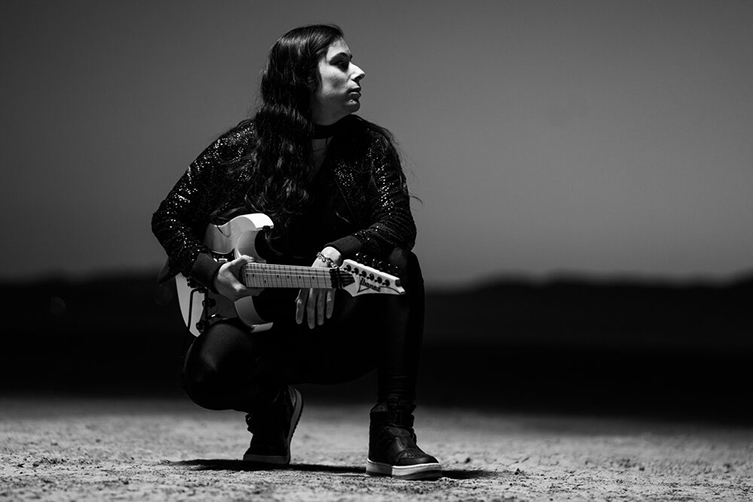
I didn’t wanna take those tunes that sounded somewhat authentic to a genre and necessarily make them into ‘metal’ or make them into shredding just because that’s ‘what I do’ you know? I really wanted to respect the music. It was definitely a stretch, I had to learn and lot and research & consider a lot of things, especially the concept of the album as a whole but I was just so glad that those were the ideas that were coming, because to me, that was the priority. I figured, I’ll run with it and I thought, ‘these songs don’t really belong together on a record’ but then I figured it out, so it really started that way. It was like, I like all this stuff, but this isn’t a record! Haha!
GG: That’s true but maybe these days more than in the past, people are listening to playlists and have more disparate, diverse collections of music. I welcome it! I think it makes Spectrum, in particular, easier to listen to, when there is such diversity. Some instrumental guitar records can be so dense with information that you have to take ten goes to navigate your way through them! Spectrum brings you in.
NB: Thank you! Well, that’s the best compliment you can give me, because me whole, I guess, epiphany with this was really that genres are not as far from each other as we might think. There’s always a running theme of some kind, whether it’s a chord progression or an instrumentation or anything, and my biggest work on this record was listing out the sequence and seeing which ones connect to which in which way and how do I want to exemplify that. For a song like Djentrification, there were a couple of things that I was considering: it sounds electronic to me, so does that mean that the drums are gonna be the electronic part? Does it means that I bring in real drums because that’s the metal part? Would this connect to a song that comes before or after? So, you know, all these little things eventually dictated the order that I felt flowed the best. If it registers that way, and the album title is obvious, then I did my job! So, I’m glad if it lands that way.
GG: It does! Job done.
NB: Thank you!
Cirque du Soleil
GG: So yeah, going on a complete tangent then: how did you get involved with the Cirque du Soleil?
NB: So, with Cirque, it was kind of a recurring thing. The show that I was in, which is their Michael Jackson show, is a resident show in Las Vegas. When they were creating the show back in 2012, they basically sent this online flyer around looking for a female guitar player, because I think they knew that that’s a pool that they may not find if they don’t just blast it out! I auditioned for it then, and I was a finalist, you know, and then I had another audition a few years later. The third time I auditioned, I had gotten the gig, like 5 years later. So, it was one of those things that was always in the back of my mind, but it was also like, ‘Are you guys really gonna tease me with this?’ (laughs) I’m glad it didn’t amount to nothing! But yeah, it brought me to Vegas, which I ended up falling in love with and staying full-time, post-that gig and everything.
It was a really particular situation because it’s not a show with a pit band or anything like that. It’s mostly tracks, it’s a lot of dancing, obviously, and there’s less... not to say that there’s less acrobatics than another Cirque du Soleil show, but it’s very dance-heavy. There’s only two musicians in the show, one being a female vocalist who’s riding on this crescent moon above the audience, doing duets with Michael Jackson, and then I’m the other character.
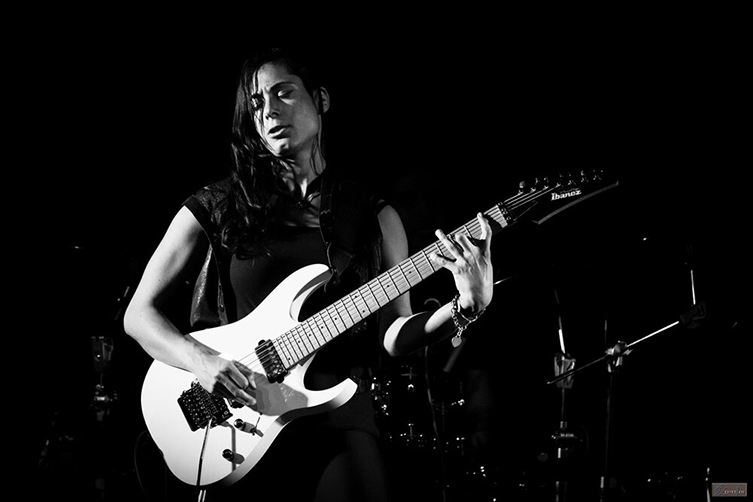
(Pic: Renee Jahnke)
I’m in this gold Jennifer Batten get-up onstage, basically running around with the other cast mates. That was the whole point of that: to just be into the whole showmanship of the whole thing, so I think that was kinda what I had to grow into with that whole gig, but that was the best thing about it, too! I still had to play difficult stuff, but you really can’t buy that kind of live experience! Especially this town, it’s a factory of shows: they do ten shows a week and that’s standard, so doing that for two years was just kinda like, ‘How many more repetitions, how much more do you need to train that muscle?’, you know? How many more reps do you need to do? (laughs) So, I’m very grateful for that, and it was a lot of fun. There’s so many talented people and so many different crafts, there was like two hundred people working in that theatre, so I’ve met so many amazing friends and people who are all world-class at what they do. This town has a ton of that, and it’s the stuff about Vegas that nobody really thinks about, but when you’re here, you get to really enjoy it.
GG: Yeah, that’s so intriguing! I didn’t actually realise those specifics about the Michael Jackson show. I knew that was the one that you did, but from talking to Robin recently (Robin Finck, Nine Inch Nails guitarist and ex-Cirque du Soleil musician), he did the Quidam show and his experience was more the ‘pit band’ show you mentioned. I assumed your situation would’ve been similar, but you were an on-stage performer!
NB: Yeah, it was a very different situation, it was very much like ‘feature character’ kind of thing, like, I hate to say it but, your job as a guitar player is secondary to you showing yourself on stage. Or at least, that’s what that role was at the time.
I’m very grateful for that, because no other gig would have given that to me in that kind of a way. It had a lot of other perks, because it was that type of situation, so a lot of PR events that we would do, my character would be included because it’s a big part of Michael Jackson’s history. We got to do some random, really cool things. Plus, I shot fire out of my guitar! That’s the part that never got old! A the end of the Beat It solo, at the tremolo picking part, Fsshhh! A 30ft arc of fire.
GG: Amazing! That’s your Rammstein moment.
NB: Yeah! So that’s the thing that never got old. Those are all the reasons why I can never complain, no matter how tired I was!
GG: Totally! Now, Nili, it’s not often that I get to talk to a guitar player who’s had fire shot out of their guitar, so on behalf of everyone who hasn’t had that experience, we need to delve slightly further into that!
NB: Haha, ok!
GG: It’s just because that doesn’t come up in most of my interviews, you know?
NB: It’s true! It’s like, those kinds of things are what you end up being asked about the most, but for you it’s just kinda like... it’s not what you ever expected when you grew up trying to be a guitar player, you know? (laughs) It’s kind of when you do clinics and the string gauge question is the one that comes up the most! You’re like, really? That’s what you want to know? Haha!
GG: Oh, we’re gonna get there, don’t worry! But yes, I expect you didn’t foresee your future self talking on a videocall to a guy in Glasgow about your guitar being a flame-thrower, it is a bit unusual.
NB: It’s actually not that unusual for me, if it makes you feel any better! (laughs)
GG: So, for the sake of just knowing, did you have a custom instrument that was rigged up? Does it come through the neck? What’s the deal?
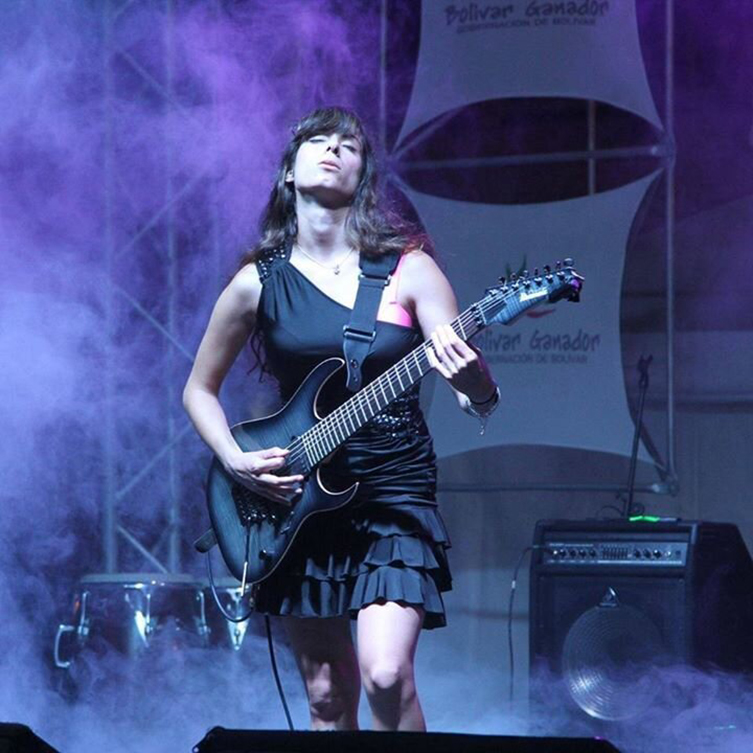
NB: So, it was a custom instrument. The firework bit didn’t have to do with that; I think that coulda been rigged to pretty much any guitar, but it was hidden better because that guitar had a ginormous headstock. That’s probably why! But it was basically... you had a canister with a little firework that is attached to the back of the headstock and loaded up before the show. Then you had a team in the third floor of the theatre overlooking the whole thing, and then I would just have to be in the right spot, aiming the right way, making sure everybody’s out of the way! As long as everything is cool, then they fire it. So, I didn’t really have to turn anything on or activate it, I just stand there.
It always felt like one of those things where I had to put out of mind what I was actually doing, because I think if I thought about it, the reality would’ve been like, ‘Oh my God!’ I probably would’ve been too freaked out, so I treated it as if it’s so automated. Like, okay: I’m walking backwards here, I’m stepping, I’m aiming, uh! Flames go up! But it’s also so far away from you when you’re aiming and stuff, and like, the show is the same all of the time, so all the dancers know not to stand in the way, like, no one’s standing there! In the close to 700 shows that I did, I think there were a handful of times when it didn’t fire.
GG: Oh, really?
NB: Yeah, and I just remember that those were the shows where it was like, ‘Wow, what happened here?’, because you were expecting something that you’re used to. But that’s kinda just how those shows operate. Everything is really automated, and there are so many layers of things going on in every single number that you have to know the hazards of the theatre, and which pieces of the floor open up and have a hole! You know, it’s like you learn the show that way more than the music.
"I think intonation is really key: I think that's largely what separates good from great."
GG: Yeah! And you’re saying all that, that you’ve got all this extra stuff to learn but then you also still have to play a note perfect Eddie Van Halen solo! That adds to it!
NB: Right! But that’s why the ten shows a week thing is so brilliant, because all you have to do is show up and eventually you’re gonna get good at it. Again, you’re getting beyond the amount of repetition that any other live experience could ever offer you. No touring act could possibly do that many shows a year and it’s both good and bad. It’s exactly what you think that would be, as far as a toll on your body and also your experience.
GG: Totally. It sounds amazing! I wouldn’t mind doing that for a while.
NB: It’s an amazing show! I might go back to doing it part-time, just because I’m here and I miss the community. It becomes your family and now that I live here, I’m like (crying voice) I miss this! But I can’t do it full-time. It’s the only thing you do, and I really like to do a lot of different things at once, so that’s kinda my new plan with that, but yeah, it’s a great show. If you’re ever in Vegas, I definitely recommend going to see it because it’s very cool.
GG: It’s on my huge to-do list! So yeah, on a swift tangent via theatrical music, let’s talk about Danny Elfman!
Danny Elfman Big Mess
You contributed to his crazy but really good Big Mess album.
NB: Yeah!
GG: How do you get involved with Danny?
NB: Well, for me it was a super-random call, you know? It was literally one of those ones where I got a phone call from a number I didn’t know and I did the ‘Oh, it’s a gig: they’ll leave a message’ thing, like, it’s never a gig, it’s never that! Especially since I just said that, right? And then I listened to the voicemail and it’s like, ‘Hi, we’re calling from Danny Elfman’s studio and we have this show that we may want you to be a part of!’, for the Coachella show that has not happened yet, and I keep saying yet!
So, you know, my jaw was on the floor, and I call them back and talk to his assistant, and the thing they were really concerned about, even for coming to an audition, was that I lived in Vegas and wasn’t local. I assured them that it’s totally fine, it’s on me, just tell me when to be there and I’ll be there. So they took enough of a chance on me to let me audition and everything, and Danny was as sweet as can be. I had very little time with the music, but it was, like, 3 songs and they sent them to me as I was getting on the plane to LA the night before, so I had like, a whole evening and morning to just kinda prepare.
He seemed so perplexed that I’d learned the music (laughs), he was like, ‘We only gave you less than a day, I didn’t even think you were gonna show up!’ Hahaha! I just took it as the perfect opportunity to fan-girl. I was like, ‘Who would stand you up? Are you kidding?’ So, it felt really right from the beginning. Then, I basically had a part-two audition with the band, when I met everybody and we all clicked, and you know, Robin was such a bro from the beginning which made me feel really welcome in that band.
We had one rehearsal before everything got shut down. I was the last member in, and they weren’t even sure if they needed another guitar player because they already had Robin, and Danny plays guitar, it’s like they didn’t really need me, so I had to kinda go in there with the attitude of ‘how do I convince them that they do need me?’ Luckily, it was just the right chemistry, and everyone in the band is just so, so cool.
Because everything shut down, we got this record out of it, which probably wouldn’t have happened if there wasn’t covid for him to write about right, so, yeah, we each got to record one at a time. I felt lucky that the recording still happened in person with Danny, on a selfish level but also musically: it was such a spontaneous process that it really couldn’t have been done remotely.

GG: Yeah! Now, you’ve brought up lots of questions to mind.
NB: Haha, go ahead!
GG: I hope I don’t forget them all! Understandably, since the shows may or may not still happen, you may not be able to say much about the setlist, but it’s a mix or Oingo Boingo, film score and this new stuff right?
NB: Right.
GG: Cool, say no more! So, then the record came about, and what I wondered was, you all had to record individually, but... it’s a kind of two-pronged question, actually: did you have much input on what your parts were or did Danny kind of dictate specifics? And then the other prong would be: were Robin’s parts already done before you came in?
"There are so many things going on that you have to know the hazards of the theatre, and which pieces of the floor open up and have a hole! You learn the show that way more than the music."
NB: Those are great questions. So, the first one. It was very much like he has a really good idea of what he wants you to play and he has such a ‘Danny Elfman’ way of writing guitar parts that I never would have imagined before, as a fan! And it actually made my job a hell of a lot easier because he demoed out the entire record and it was very clear what parts were there, so I just kinda learned the record and then whatever he wanted to change on the fly – or sometimes he just sat with his guitar and came up with stuff – I just learned it and recorded it.
As for as Robin’s parts are concerned, we’re not always on the same songs: some of them I layered all of the guitars and some of them he did. Some are a mixture. It wasn’t for any reason, I don’t think, it was just like where the sessions were when I came in.
GG: Sure.
NB: It was literally like, ‘what do you wanna start with?’ ‘Well, let’s look at this!’ A lot of Danny’s guitars are in there: a lot of the stuff from his demoes sounded good but, ‘we need these replaced’. So it was really a mixture throughout the record, which was really cool, because I’ve never worked that way before. I didn’t know how it was gonna happen when I got there, so it was a really cool way to work! And, you know, some tracks that I really like, I ended up playing all the guitars on, which I never would’ve expected.
GG: From a listening perspective, which ones were those?
NB: Native Intelligence, I played either all the guitars or definitely most of them. I think some feedback was already in there but Better Times too. Those, I remember really layering a lot of stuff on. That’s what’s so cool about this record: there’s room for three or four of us guitarists to all play, like, a lot of stuff!
GG: Yeah, it’s a big long record. It’s one of the most unique things I’ve heard in a long time. I loved it, but I love Danny Elfman’s stuff anyway.
NB: I know, I’m so biased as a fan, that anybody who’s gonna talk to me is gonna get the same answer, right?
GG: Yeah. He’s the coolest guy! So, it’s time for guitar chat! Now, actually, just before we talk about your guitars, I wonder: what kinds of guitar does Danny Elfman play?
NB: He has a lot of different guitars lying around, and a lot of them are not, y’know, what you’d expect. He’s got a lot of really nice vintage acoustics lying around, and then like, for his electrics, he’s got a lot of custom stuff and brands that I wasn’t familiar with, ones that I wasn’t exactly sure what they were! I haven’t seen his entire collection or anything like that, but he’s just got so many instruments lying around the studio.
GG: Brilliant, fair enough! Well, one brand you do know a lot about is Ibanez!
NB: Right! (laughs)
Ibanez, EMG and Gear Chat
GG: Were Ibanez one of those aspirational ones, where all the players you loved when you were young played Ibanez?
NB: It was, yeah, and I actually didn’t own one until I started working with them, which was the really fun thing about it. That was just a coincidence, but yeah, I was always a fan and that was where I always wanted to be.
GG: So, how did you start working with them?
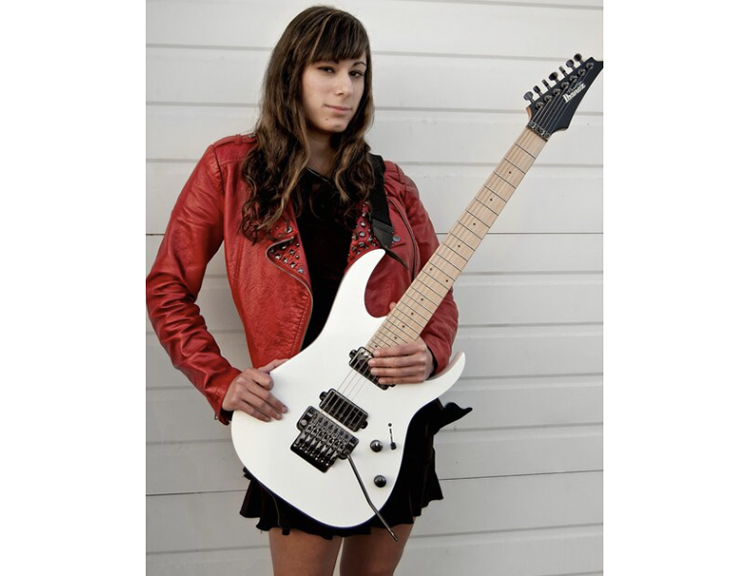
NB: Um, back when I started playing with Tony McAlpine, I think it was a decade ago now, he was an Ibanez artist and that gig required 7-string guitars, which I didn’t have at the time. So, I kind of started talking to Ibanez through him and was like, ‘I don’t know if you’re interested in new artists right now but I need an instrument for this gig’, and it just kinda worked out from there. Then I just... stayed (laughs) cuz it’s where I wanted to be!
GG: Hell yeah! And as well as Ibanez, you’re also an EMG person. What do the active pickups give you that the passives don’t?
NB: Well, the interesting thing is, I have active pickups in a bunch of my guitars, but I have some EMG passives, too. I really like them: I know it’s not what people associate with EMG but their pickups are so clear, and I think you find that in both the passives and the actives, so I really like that transparency. I don’t know, it’s just like, back in the 7-string thing with the active pickups, it was just a feel for the guitar that I got used to. I’ve been playing the passive pickups thing for a minute now, so, I think that’s probably, ultimately where I live.
GG: Okay, and your yellow Ibanez Genesis with the yellow EMGs, are they passive?
NB: They are, the humbuckers are the Marty Friedman set and then there’s an S-1 in the middle. The yellow is custom.
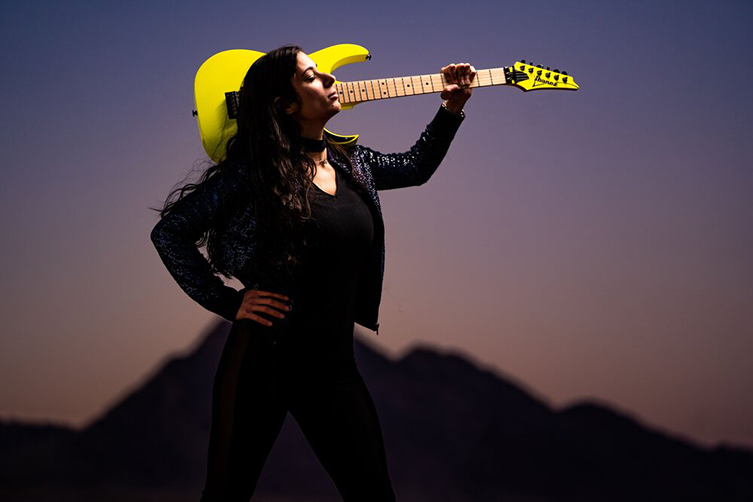
GG: Yeah, because definitely, right? Haha!
NB: Yeah, exactly!
GG: And yes, I do have the string question because I am interested! You have a scary, outrageous technique. Are you a gauge 9 person?
NB: 9s yeah, but for the 7th string, I use a .054, which I guess technically would’ve been a .052 but that’s the only difference that I make. I’m very much ‘standard’ everything, you know: standard tuning for most things, and standard gauge.
GG: Okay, cool! And what about picks?
NB: I use the Dunlop Big Stubbys, the 2mm ones.
GG: Ahhh, really?
"For me, it was really frustrating when I could figure out any song on the guitar and just have no idea what's going on! I really felt like I was doing the parakeet thing"
NB: I’ve been using those forever. It’s like, pretty much as long as I can remember.
GG: And what is it about them that you like so much?
NB: Actually, I wanna ask why you’re surprised by that! (laughs) That’s interesting to me! But they have that really strong grip, and I’ve grown so accustomed to that, but I was never a fan of thin picks for most things. I need the heaviness to get across the strings and stuff. Part of it is, I’m very much an ‘if it aint broke, don’t fix it’ person, so whatever gear’s worked for me in the past, it’s usually something I’m gonna stick with unless told otherwise! Unless something else comes out that’s mind-blowing, I stick to what works for me.
GG: That’s a good answer. And to briefly answer yours, in something like 150 interviews that I’ve done, nobody has ever told me they use that plectrum!
NB: Haha, ok, fair enough! But you know what? One plus about those picks that people don’t think about is that they’re less likely to fall into the Bermuda Triangle of picks because that colour does usually stand out more than the rest of the picks you lose!
GG: That’s very practical advice there! I like that. Now, here’s a generic one: do you have any fun playing tips you can pass on? It can be on vibrato, it can be phrasing, just some sort of playing-related insight that could be good for our readers?
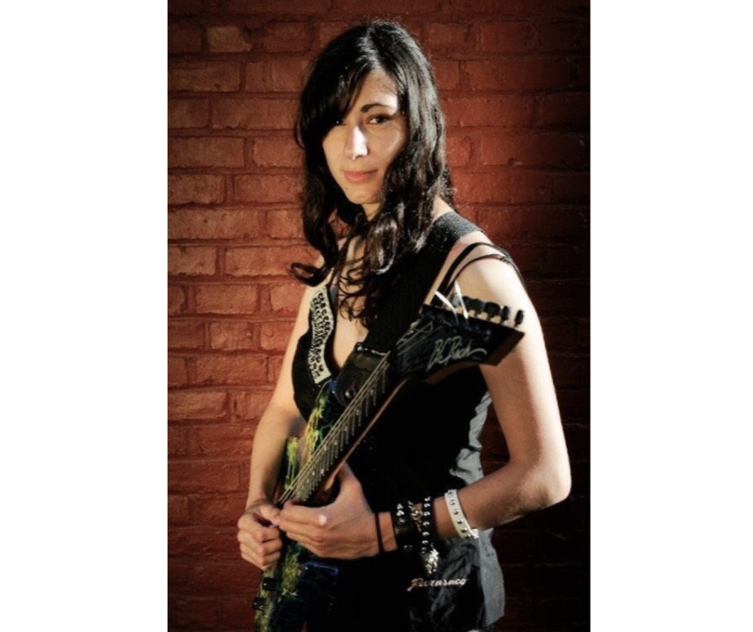
NB: I think intonation is really key, for any bending or vibrato or anything like that. Any time that we do anything besides your regular fretted note, you have to intonate your own instrument. I think that’s largely what separates the good from the great, you know? The attention to detail with that, and how in tune you really are. For us, the tuning doesn’t end with tuning the guitar, so I think that’s one thing.
GG: Excellent! That’s a really good one and it’s not one I’d have expected to hear, so thank you!
NB: Well, good! (laughs) For me, that’s huge, and I definitely went through a point where I was unhappy with my intonation and I got a little too serious about it maybe! I had to just let it go but, in general, I think it’s just... it’s not that it’s overlooked, but it’s maybe not spoken about as like, ‘hey, this is a really important thing’.
GG: Yeah! I think so, and I’m glad that’s what you said. Now before we tie things up, here’s a slightly different angle. It’s 2021, and you’re a successful solo artist in a genre that’s relatively niche compared to, like, Taylor Swift or whatever, and I’m wondering: how easy has it been to market yourself, to do social media and so on? Is there anything that you could share that’s been really useful for you, that other people might benefit from?
NB: For me, it has definitely felt like it’s a marathon, not a sprint, you know? I think that was the biggest learning experience that I got from it, to focus on that. A career in music is really hard, no matter how you slice it, and it would be really frustrating to me, earlier on, when it just felt like it wasn’t going anywhere. I think these things just take time and a lot more time than we want or expect in this age of social media where everything is instant gratification and you’re used to seeing other people’s videos or something like that. It’s easy to make comparisons and stuff. So, I think once I focussed on that, it definitely helped the perspective a lot, because it really takes time and a lot of work. So, if you don’t really expect anything, it’s a little but easier to digest.
Wise words, from someone who most definitely walks their talk! I had such a fun time talking with Nili, and felt that we covered a lot of good, worthwhile topics, not just the essentials like flame-throwing guitars! She was very gracious and accommodating with her time and we’d like to thank her for that.
Keep up with Nili on her social channels and check out the official Nili Brosh website for music, merch and more!
Thank you for reading this exclusive interview: we have many more in our interviews section of the site, with players like Steve Vai, Joe Satriani, Robin Finck and many more! There are more to come, too, so hopefully we’ll see you back soon.


